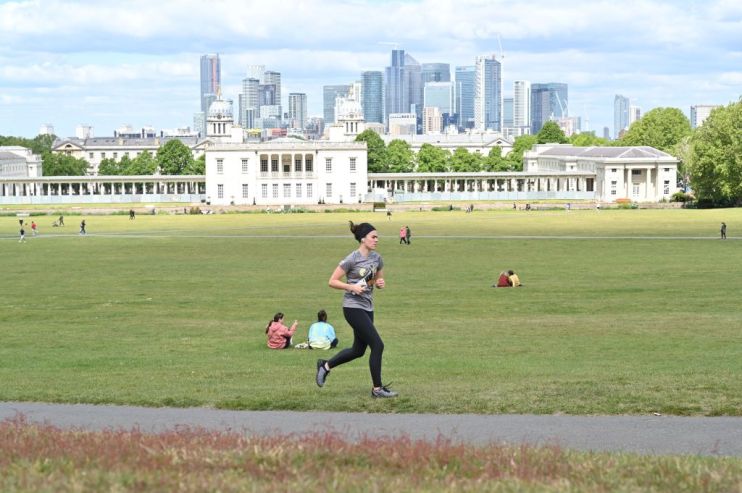Wellbeing must be at the heart of Britain’s ‘back to work’ efforts

The coronavirus crisis has turned millions of us into home workers. While the new regime has worked well for some, for others it has been more challenging.
For many people, work and home life have been positively rebalanced now that lengthy commute times are non-existent, but others feel isolated, miss the buzz of an office and have to balance work with caring for others.
Read more: Kindness at the heart of City efforts
Perhaps unsurprisingly, our recent survey has UK workers evenly split on how they feel about working from home: 39% wish to do so more once we’re through the pandemic and 38% say the reverse.
For now, for most, this isn’t a choice. The pandemic has made visible to many more people just how important it is for employers like us at PwC to maintain a strong focus on the motivation, morale, and mental and physical health of our people – all of course are interrelated.
With our 22,000 people in the UK working from home, I worry about how this dislocation is affecting people’s wellbeing, particularly against the backdrop of the crisis and among those who are used to working physically side-by-side their teams.
Like other businesses, we’re making a concerted effort to replicate the camaraderie of office life to keep employees engaged, with everything from virtual coffees, clubs and quizzes to team check-ins, brainstorms and debate.
My regular in-person Town Halls for all our people are now live streams where employees can ask questions directly from their homes to mine. The increase in attendance and questions shows our people are looking for answers but also engagement and reassurance.
But communication and engagement can only go so far, not least because different approaches work for different people. Besides, there’s a real risk people spend too much time at their computers, which again impacts health and wellbeing.
Clearly, it’s a hugely complex issue and for precisely this reason we’ve increased the level of support to help all our people at this time. This includes regular webcasts with psychiatrists and psychologists who can answer questions and provide advice and perspective on a range of challenges, approaches and tips.
They have been among our best attended events ever, and both the number of questions asked and the feedback from all levels of staff, shows we are meeting a need.
This has caused us to go a step further. We’re currently piloting a new scheme to gauge how our employees are coping during the pandemic and to give them anonymised data they can act on themselves. Over 2,000 people applied to take part, double the number of places, demonstrating the appetite for support.
Participants have wearable technology so they can share their biometric data, and are also completing psychometric tests and allowing us to collect information including diary entries.
Machine learning will help us identify patterns and links between factors like sleep, exercise and diary-load on overall stress levels and cognitive performance. Not only will this anonymised data help us assess how people are coping with work, it will help us to see how we can then manage things better – not just now but with remote working in the future.
I recognise not every business has the scale or means to take such steps. Moreover, I’m mindful we’re fortunate having the ability to work remotely when many jobs don’t come with that option. But for many people and businesses, remote working will be the norm for some time so everyone needs to find a way to make it work for them. If we can learn lessons that will help us and others to sustain everyone’s health and performance we should.
Few businesses can survive without a healthy and motivated workforce, and we owe it to our employees – as well as to the long term success of our organisations – to invest in their health and wellbeing. We all hope the pandemic will soon come to an end, but our responsibility to look after our people will continue indefinitely.